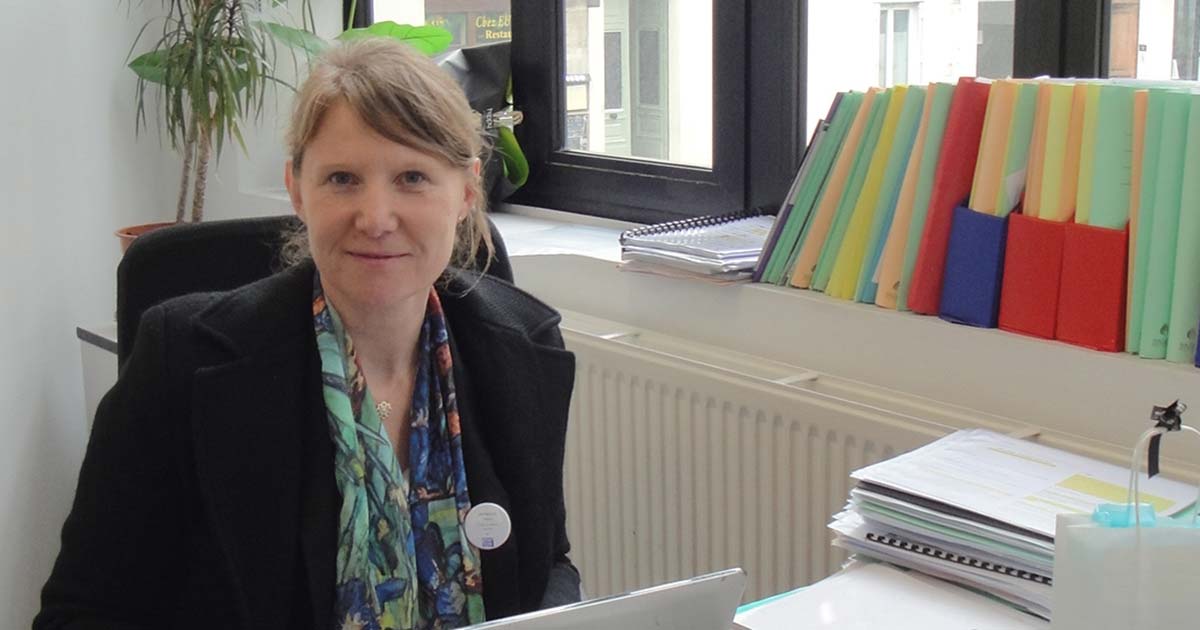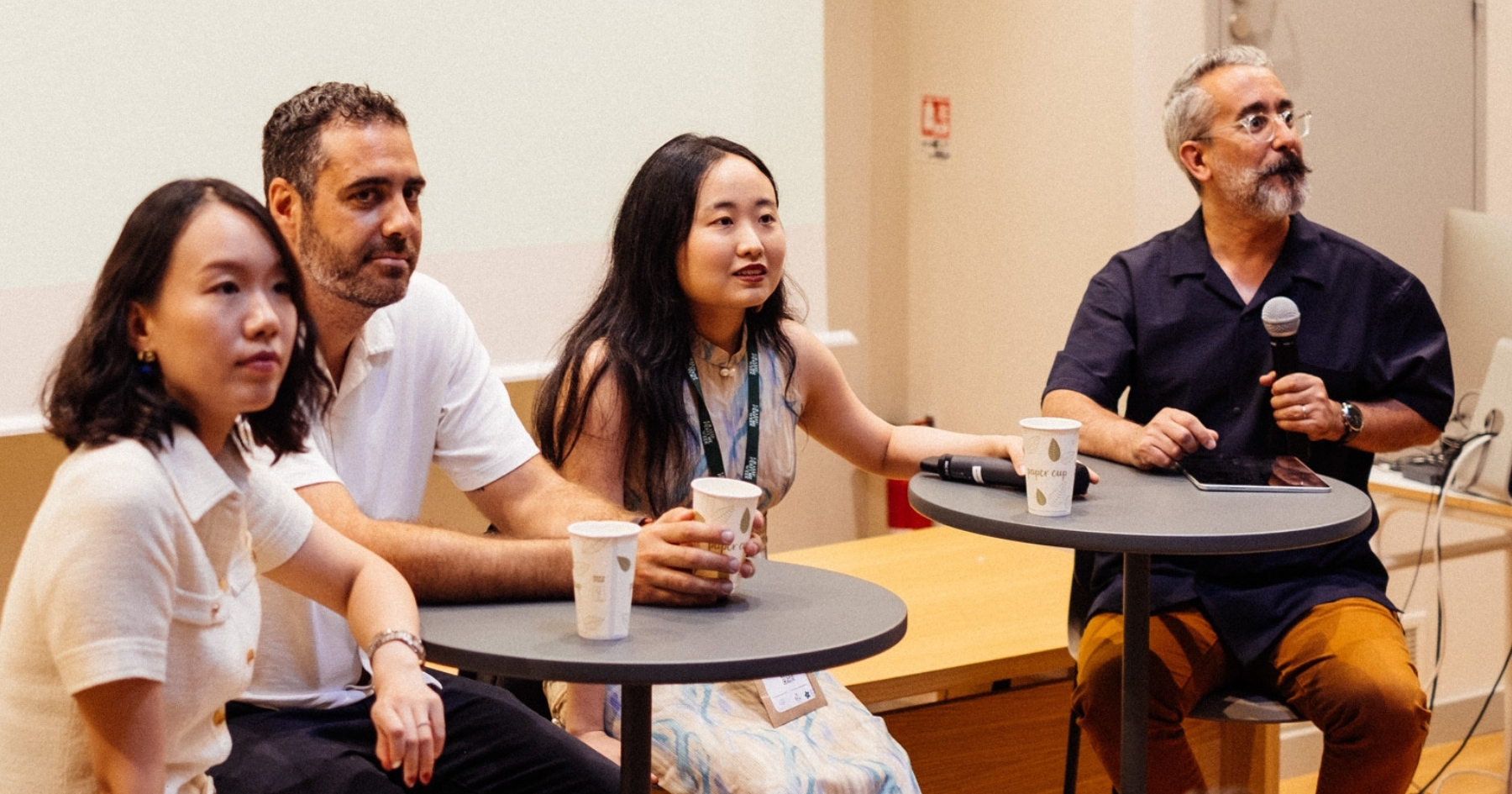Cette publication est également disponible en :
Français
Chantal Artignan is the director of the École Supérieure du Parfum (ESP), located in Paris, which has been training students in Paris and Grasse since 2011. A biochemist and biologist by training, she began her research career in Quebec before joining the Isipca and then the team behind the ESP, supported by the École de Condé. After the publication of our article “All-inclusive”: Perfumery confronts inequalities in the eleventh issue of Nez, here is the full version of her interview, in which she tells us about diversity, equality and inclusion in the perfume industry today.
Perfumery, historically, has mostly been a male domain, how different are the perfume schools?
It’s true that the perfumers whose names are well known in history are almost all men, but fortunately today women are taking a stand. At the school the ratio is reversed, the first classes had 15 % men, we are between 20 and 25 % today. The trend is not going to be reversed, but there is a progression!
Do you think this statistic is in line with what you observe in the industry these days?
Not really, of course. With the parity laws, we may be able to rebalance things, but management positions tend to be held by men. In the corridors of large companies, you hear ‘chairmen’ more often than ‘chairwomen’. So far, male students have also had more opportunities than female students. We have trained a number of female perfumers, but paradoxically even more male perfumers, even though men only make up a quarter of our numbers.
So what are the opportunities for female and male students?
Basically, the opportunities do not differ according to gender, but it is true that evaluation is a field where there are many women. It’s a job that requires understanding of the work of the perfumer and knowing how to talk to him or her while understanding the marketing and its needs. It requires a lot of diplomacy, a quality that is culturally more spontaneously sought in women, which does not mean of course that men are not diplomatic! This is one of the main openings in our training, but we cover all aspects of perfumery, from the raw material to advertising, with a focus on creation and marketing.
How does the ESP open up to the different cultures that are interested in perfume creation?
We are speaking French at the school, most of our courses are in French. But the idea is to promote French know-how to people who will be able to keep it alive, even abroad. Of course, we welcome foreign students, but the condition is that they can follow the courses in French. Foreigners integrate extremely well, every year we welcome students from various backgrounds: Koreans, Swiss, Belgians, Italians, Maltese, to name but a few of the nationalities represented here.
Where does the know-how that you teach spread to?
Our students are lucky enough to travel abroad a lot, and they often get their first job experience there. More than 30 % go to work in a foreign country, whether in Switzerland, the United States, Dubai, China, Madagascar, in short on every continent. Wherever they go, they seem to like it a lot!
Studying at the ESP has a price [the five-year programme costs around 38,000 euros], is it made accessible to less privileged social strata? Are there any facilities for students who have less ease in financing their education?
This is indeed something we are thinking about very hard, because our school should not be reserved for a social elite. We are also in the process of setting up the collection of the French apprenticeship tax, so that we can give it to students who need it. Today, some students have a job alongside their studies, some even manage to get a permanent job before the end of the course, others also take out loans. We are aware of this, so for the future we want to offer grants, and we have set up a junior company, an association with an economic and educational vocation, which should eventually enables some students to earn money. The goal is that they can offer their services to individuals, companies and propose activities around perfume. All this is still in its infancy, but we are very open about these subjects.
Does this also make it possible to level out the inequalities at the end of school?
Certainly, because we have noticed that everyone has a chance when they leave our school. The ‘sons of’ and ‘daughters of’ have almost more difficulty in finding opportunities, particularly because there is a certain confidentiality in the field. It is difficult for a composing house to hire a person whose father or mother works for the competition. ‘Normal’ students who are motivated are promised to success, especially as the new generation has a very open mentality. In the industry, we also see great accomplishments from women, such as Christine Nagel or Mathilde Laurent, who are doing very exciting things today.
Concerning students, does the future lie in the traditional perfume industry?
It is an industry that still knows how to give a chance to those who build things. However, it is not the only way out. Some of our students have successfully become entrepreneurs! They had to put a lot of energy into it, but they managed to do it well. They often formed mixed teams, which extended their experience built up at school. This generation is less attached to gender oppositions and places more emphasis on skills. This is heart-warming. I am thinking, for example, of the perfume laboratory Maelstrom, Maison Violet, Picok, which makes eco-responsible household products, or Drips fragrances. All of these companies were founded by former students; I hope that this will be the trend for the new generations because they have ideas, they realise them and thrive on being free to do what they want in the difficult context we know. The Covid episode brought out values that we would like to see more often. Here, our students have forged new bonds of solidarity. They surely will be very useful!
- Follow ESP on Instagram : @ecoleparfum
- ESP website: www.ecole-parfum.com
“All-inclusive”: Perfumery confronts inequalities – Summary
- Introduction, by Clément Paradis
- Shabnam Tavakol: “There is a problem of diversity, equity, and inclusion in perfumery”
- Shyamala Maisondieu: “I had to make my own voice heard”
- Chantal Artignan: “Our school should not be reserved for a social elite”
- Alessandra Tucci: “If the perfume industry wants to see more diversity in its teams, it can only happen through education”
- Saskia Wilson Brown: ”Only diversity can allow for a living culture“
- Mieke Van de Capelle: “We need to help students who want to pursue a career”








Comments